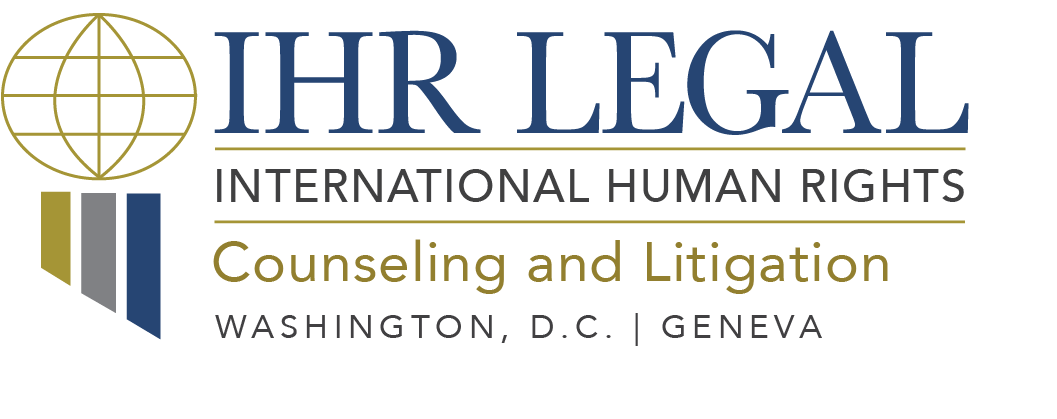Professional Assistance before the Universal Human Rights System
Within the institutional framework of the United Nations (UN) lies the Universal Human Rights System. Unlike other human rights systems, which are regional, the nature of this system allows people from almost anywhere in the world access it.
The Universal System is composed by different international instruments that recognize human rights, such as the Universal Declaration of Human Rights, the International Covenant on Civil and Political Rights, the Convention against Torture and Other Cruel, Inhuman or Degrading Treatment or Punishment, the Convention on the Elimination of All Forms of Discrimination against Women, among others; as well as mechanisms which supervise the respect and guarantee of these rights, such as committees, special rapporteurships, working groups and independent experts.
Individuals may utilize these mechanisms to file complaints alleging human rights violations, either when a State is directly responsible, or when a State tolerated or consented to such a violation. It is also possible to resort to some mechanisms of this System in situations in which the human rights of a person are at serious risk, particularly when the right to life and integrity are threatened, in order to obtain provisional measures and require the respective State to adopt measures to avoid irreparable harm.
IHR LEGAL provides specialized professional assistance in the filing of international complaints against States for human rights violations before bodies of this system, such as the U.N. Human Rights Committee, as well as support in the proceedings. We also provide assistance in regard to complaints and requests for urgent action for human rights violations or situations of risk before the special procedures of the U.N. through working groups and rapporteurs, amongst others.
International Covenant on Civil and Political Rights
Article 9
1. Everyone has the right to liberty and security of person. No one shall be subjected to arbitrary arrest or detention. No one shall be deprived of his liberty except on such grounds and in accordance with such procedure as are established by law.
3. Anyone arrested or detained on a criminal charge shall be brought promptly before a judge or other officer authorized by law to exercise judicial power and shall be entitled to trial within a reasonable time or to release. It shall not be the general rule that persons awaiting trial shall be detained in custody, but release may be subject to guarantees to appear for trial, at any other stage of the judicial proceedings, and, should occasion arise, for execution of the judgement.
Professional assistance before the Working Group on Arbitrary Detention
One of the special procedures of the Universal Human Rights System is the Working Group on Arbitrary Detention (WGAD), which is composed of five independent experts elected by the U.N. Human Rights Council.
The WGAD’s main function is to review complaints filed by persons from any part of the world relating to arbitrary detentions, in order to determine, based on international human rights law, whether the detention is arbitrary, and, if so, to require the respective State to adopt measures to cease and/or redress the human rights violations presented, including the release of a person who is arbitrarily detained.
Methods of Work of the Working Group on Arbitrary Detention
Article 9
7. The mandate of the Working Group is to investigate cases of deprivation of liberty imposed arbitrarily. In the discharge of its mandate, the Working Group refers to the relevant international standards set forth in the Universal Declaration of Human Rights, as well as to the relevant international instruments adopted by the States concerned, in particular the International Covenant on Civil and Political Rights […].
Additionally, the WGAD has an urgent action procedure for cases in which a person, besides being arbitrarily detained, is at serious risk and his or her life, health, or physical or psychological integrity is at risk; or in situations in which, even without such risk, there are special circumstances that require an urgent procedure. The framework for this procedure allows the WGAD to send communications to the involved government and request that it adopts the necessary measures to respect and guarantee the rights of the person being detained.
Finally, it should be noted that the WGAD may rule on all types of deprivations of liberty, including preventive detentions, deprivations of liberty in the context of a criminal conviction, and administrative detentions of migrants, among other cases. IHR LEGAL provides legal assistance in filing complaints of arbitrary detention before the WGAD, as well as represention at proceedings. IHR LEGAL also assists with requests for urgent actions.
United States of America
1701 Pennsylvania Avenue, N.W.
Suite 200
Washington, D.C. 20006
United States of America
Switzerland
Rue de Pré-de-la-Bichette
Nations Business Centre, 6e Étage
1202 Genève, Suisse
(Mailing address / appointment only)
Phone: + 1 (202) 465-4814
Email: info@ihr.legal

